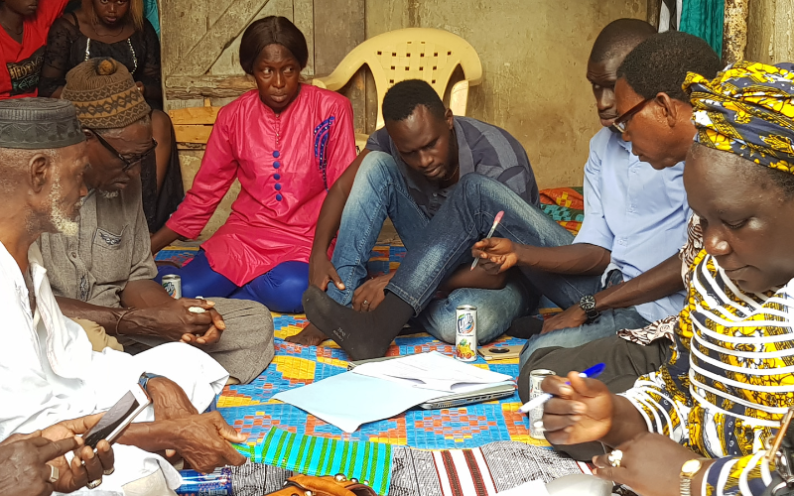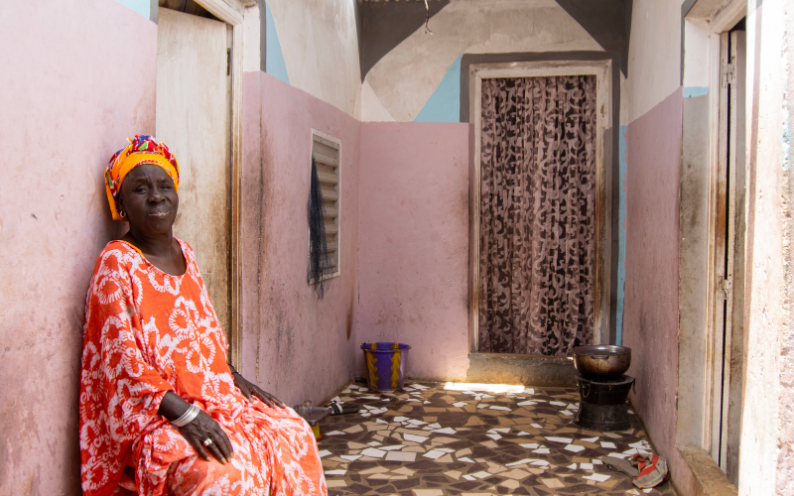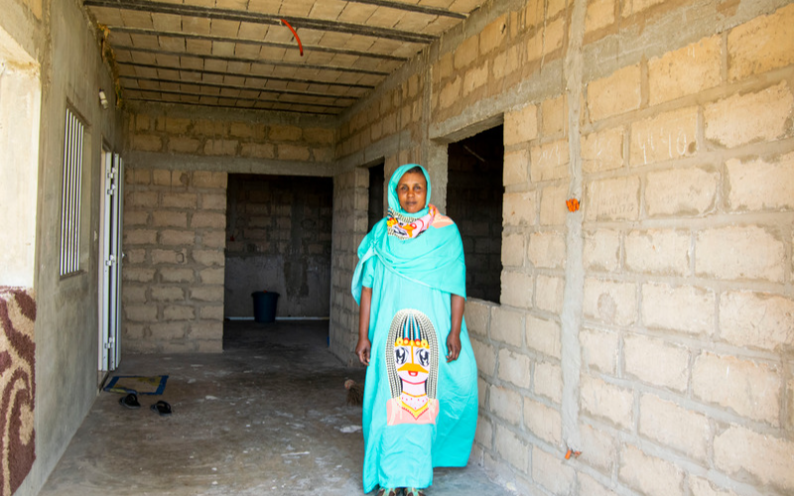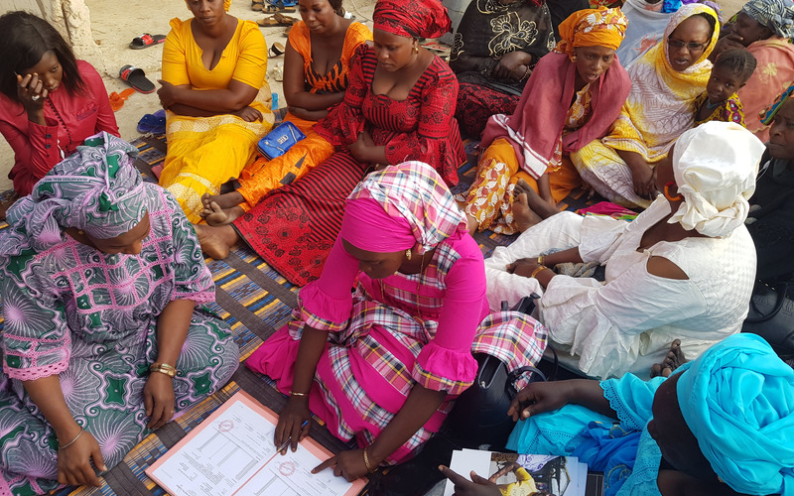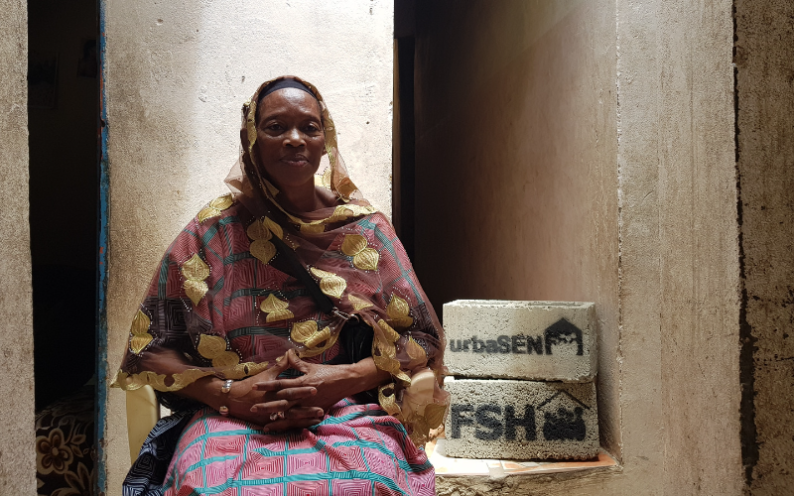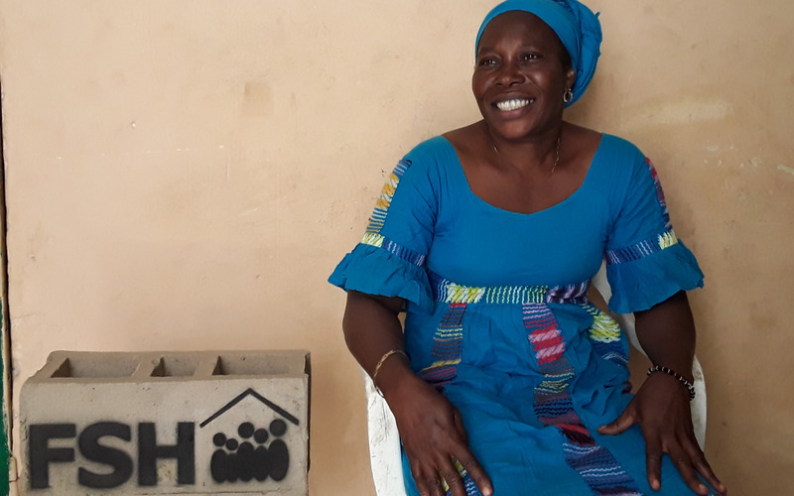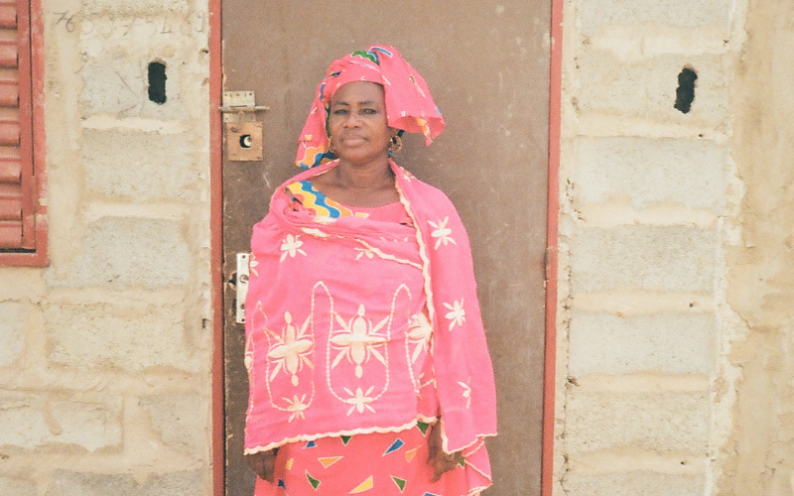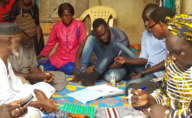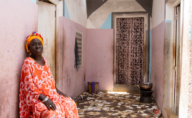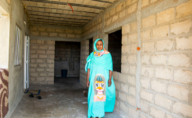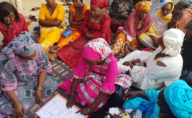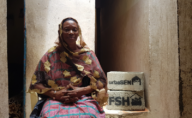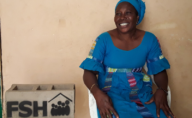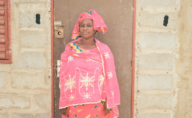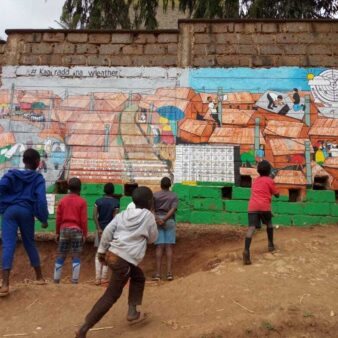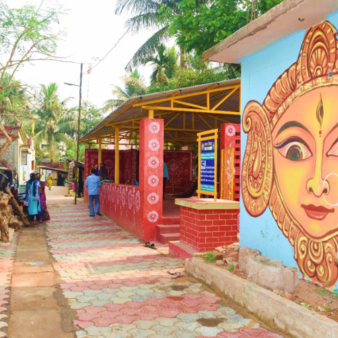A devastating drought in Senegal in the 1970s and 1980s provoked a rural exodus and massive settlement around the capital city, Dakar. Rapid population growth combined with poorly controlled urban densification led to the expansion of the city’s informal suburbs, which are now home to more than 1.8 million people.
These suburbs include lowland settlements, which before the drought were wetlands. In 1987, significant flooding occurred on the outskirts of Dakar and has recurred every year since then during the rainy season. The water settles in the lowlands, flooding people’s homes constantly.
Despite improvements carried out as part of state flood-control projects, flood risk persists in many of Dakar’s outer districts and continues to cause considerable damage to public spaces and self-built dwellings. The problem has been further exacerbated by climate change, which has led to an increase in heavy rainstorms.
Building on local community responses to this situation, a community-driven programme was structured in 2014 and has since been working to improve the quality of life and resilience to flooding in these informal suburbs. The Housing and Living Environment Improvement Programme for Vulnerable People in Precarious Neighbourhoods is led by the community, organised into the Senegalese Federation of Inhabitants (a federation of women-led savings groups), with the support of local NGO urbaSEN.
So far, the programme has had a direct positive impact on more than 20,000 people, including the 15,000 members of the Federation, 8,000 people whose homes have been upgraded and 600 craftspeople who have been trained and/or involved in construction projects.
The project in practice
Since its formation in 2014, the Senegalese Federation of Inhabitants has grown quickly and now has 570 savings groups. Of the 15,000 members, 96% are women. They gather their savings collectively and can take loans from a revolving fund to carry out improvement work.
The work of the Federation is supported by urbaSEN, which is made up of 22 professionals, including urban planners, engineers, architects, economists and social workers. The organisation supplies technical assistance to the Federation, supervises construction and trains residents to improve housing, wastewater management and stormwater infrastructure.
Grouped into clusters, members of the Federation take part in all stages of project implementation, including the very beginning when they conduct and organise awareness-raising activities in their districts. They also plan and manage collective sanitation infrastructure and generate the necessary documentation for future land tenure regularisation. To do so, they collect socio-economic and demographic data on the informal neighbourhoods using surveys, drone-mapping and georeferencing.
UrbaSEN trains residents, especially young people, to carry out this data collection but it also trains local public servants. The involvement of local authorities helps them better understand development issues identified and mapped by the residents of informal settlements. This advocacy work has led to the creation of one municipal urban planning office and to 18 partnership agreements signed between urbaSEN and municipalities. Through these agreements, public servants are trained and public land, funding or machinery is provided to implement the neighbourhood improvement activities. Drone-mapping has so far been carried out in eight municipalities to facilitate evidence-based decision-making.
To finance the works, UrbaSEN also manages the Federation’s revolving fund, which is the only way to save and take loans for populations that are excluded from the traditional banking system and microfinance due to their irregular or extremely low incomes, the absence of land titles, or ability to provide financial guarantees. The Federation supports its savings groups with training in administrative and financial management, as well as in the development of income-generating activities, such as agricultural production.
Since 2011, urbaSEN has been supported by the French-Swiss association urbaMonde, which helps with strategic development, international fundraising, reporting and networking with other international partners.
Through the programme so far, 800 housing improvement or reconstruction projects have been carried out with loans of up to 984,000 XOF ($1,600 USD) from the Federation’s revolving fund, reducing vulnerability to flooding and improving quality of life for residents. In addition, through collective loans, 100 public space and sanitation projects have been carried out including the creation of public recreation areas and playgrounds, stormwater basins, sanitary facilities, rainwater management structures, drainage pavements, seepage pits and water stops. These projects improve the living environment and make communities more resilient to the effects of climate change.
Through collaborations with the National Agency for Civil Aviation and Meteorology (ANACIM) a flood early-warning system has also been implemented through the programme which issues SMS alerts to residents before heavy rainstorms.
Funding
The budget managed by urbaSEN and the Federation in 2021 was 196 million XOF ($320,000 USD). Improvement works to homes and community infrastructure are financed through the Federation’s revolving fund, which now has around 590 million XOF ($960,000 USD).
The fund has diverse sources, including: grants from international institutions (72.8%); monthly contributions by saving groups (19.5%); solidarity loans from Swiss housing cooperatives and individuals (2.7%); and interest on loan repayments (5%).
Since its creation, the fund has given out 805 loans to members, with an average amount of 704,000 XOF ($1,445 USD), which is generally paid back in the 20 months after the home improvement works are finished. The repayment rate is 92%. In the event of repayment difficulties, the instalments can be adapted to the household’s new situation.
Social impact
A significant impact of the programme is the way in which it is empowering women and changing the cultural view of their role in society. Women are rarely involved in construction in Senegal, even in self-built family homes. The Federation and urbaSEN are changing that by training women to supervise the work being carried out in their homes (mostly by male craftsmen) and enabling them to identify and raise possible technical errors during the process. Sites are also monitored by urbaSEN’s technical team, which is 50% women.
Thanks to this empowerment, more women are being elected to local authorities. In 2022, 50 female members of the Federation were elected to city councils, compared with 12 women in 2014.
The programme’s extensive data collection is a key part of the process of regularising land tenure in Senegal’s informal urban settlements, which are home to around 2.5 million people. This data helps to establish a Certificate of Occupancy for residents and it is hoped the production of these certificates will encourage the government to speed up the issuance of legal land titles.
Environmental impact
The programme was established in response to flooding and the effects of climate change on informal settlements and has a strong environmental ethos. The introduction of adequate drainage and the regulation of surface water flow help to reduce the risk of flooding, while education programmes aim to reduce behaviours that negatively impact the environment, such as groundwater contamination, wetland erosion and waste dumping.
The development of planted public spaces, the inclusion of sanitation facilities and improved waste management have all improved hygiene and the overall health of residents.
Environmentally– friendly techniques and materials are used during construction, including compressed earth bricks and solar-powered water pumps. Some of the Federation’s clusters have been trained to use the typha plant (an invasive weed) in income-generating activities, such as drying and weaving the fibres into mats and fencing.
Typha clay bricks and insulation will be used in 2023 for the construction of a 150-home eco-district (called Cité-FSH) on a plot of land collectively owned by the Federation’s new residents’ cooperative. A legal and financial arrangement inspired by the Community Land Trust model will ensure no real estate speculation is possible and will safeguard the security of tenure and long-term affordability of the project.
Transfer and expansion
At the regional level, urbaSEN and the Federation have already inspired and advised partners (including GRDR in Guinea Bissau and Yaam Solidarité in Burkina Faso) to experiment with the same model. Tools and methods, such as drone-mapping, participatory data collection and revolving fund financing are also being replicated. A regional network of resident confederations, of the member countries of the West African Economic and Monetary Union (UEMOA in French), will officially form in 2023 to strengthen collaboration and peer-to-peer exchange.
The vision of this project is long term, with no end in sight. With the support of urbaSEN, the Federation has become a key player in local urban development. Its influence will continue to grow as more members join the savings groups, and more strategic partnerships are made with municipalities, ministries and state agencies –; all with the shared goal of improving the quality of life and resilience to climate change in the suburbs of Senegal’s cities.
In 2023, the Cité-FSH greenfield project will change the programme’s scale and demonstrate that with the right technical support, organised and empowered low-income women can carry out a pioneering eco-district project in Africa.
To find out more about this extraordinary project watch this short video here.

